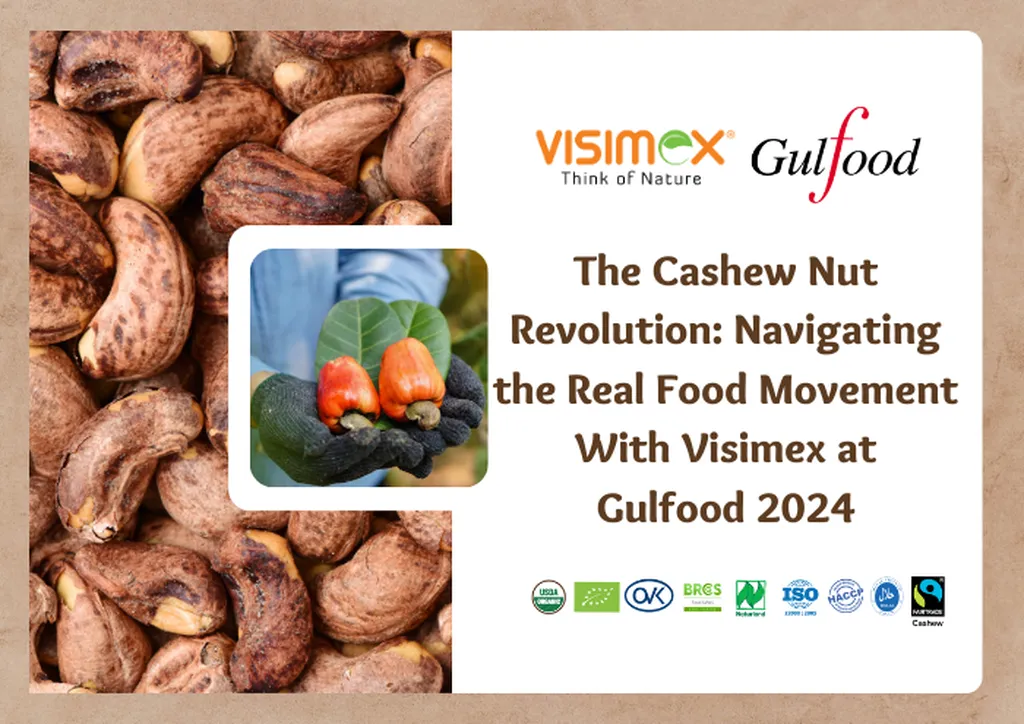In the heart of cashew-producing regions, a mountain of underutilized by-products has long posed an environmental challenge. But what if these cashew leftovers—cashew nut shells, cashew apples, and pomace—could be transformed into valuable animal feed, boosting nutrition, sustainability, and profitability? A recent review published in the *Turkish Journal of Agriculture: Food Science and Technology* (translated from Turkish as *Turkish Journal of Agriculture: Food Science and Technology*) suggests they can, offering a promising solution for farmers and the environment alike.
The study, led by Mikail Yeniçeri from Kırşehir Ahi Evran University’s Institute of Nature and Applied Sciences, synthesizes research from the past decade to evaluate the potential of cashew by-products as sustainable animal feed. Yeniçeri and his team found that processed cashew nut shells (CNS) provide high fiber and energy, making them suitable for ruminants like cattle, goats, and sheep. Meanwhile, cashew apples and pomace offer carbohydrates and vitamin C, benefiting swine and poultry, particularly broilers.
“Processing methods like roasting, ensiling, and fermentation are key to reducing anti-nutritional factors such as cashew nut shell liquid (CNSL) and tannins,” Yeniçeri explains. “This not only improves safety and digestibility but also enhances animal performance and gut microbiome health.” The review highlights increased populations of beneficial bacteria like Lactobacillus and reduced methane emissions, a significant environmental benefit.
Economically, the integration of cashew by-products into animal feed could lead to decreased feed costs and a lower carbon footprint. This is particularly relevant for major cashew-producing countries like India, Nigeria, Brazil, and Vietnam, where the agricultural sector is a significant economic driver.
However, challenges remain. “CNSL toxicity, processing costs, and regulatory gaps are hurdles that need addressing,” Yeniçeri acknowledges. “Long-term trials and cost-effective detoxification methods are crucial for scalability.”
The implications of this research extend beyond the agricultural sector. As the global push for sustainability intensifies, the energy sector is increasingly looking for ways to reduce its environmental impact. The integration of cashew by-products into animal feed could contribute to this effort by lowering methane emissions, a potent greenhouse gas. Additionally, the economic benefits could spur investment in agricultural technologies and processing methods, creating a ripple effect across related industries.
Yeniçeri’s review underscores the importance of interdisciplinary collaboration in driving sustainable development. By bridging the gap between agricultural waste and animal nutrition, this research opens up new avenues for innovation and economic growth. As the world grapples with the challenges of climate change and resource depletion, such solutions will be vital in shaping a more sustainable future.
The study, published in the *Turkish Journal of Agriculture: Food Science and Technology*, serves as a call to action for researchers, policymakers, and industry stakeholders to explore the untapped potential of cashew by-products. As Yeniçeri puts it, “The future of sustainable agriculture lies in our ability to innovate and adapt, turning challenges into opportunities.”

